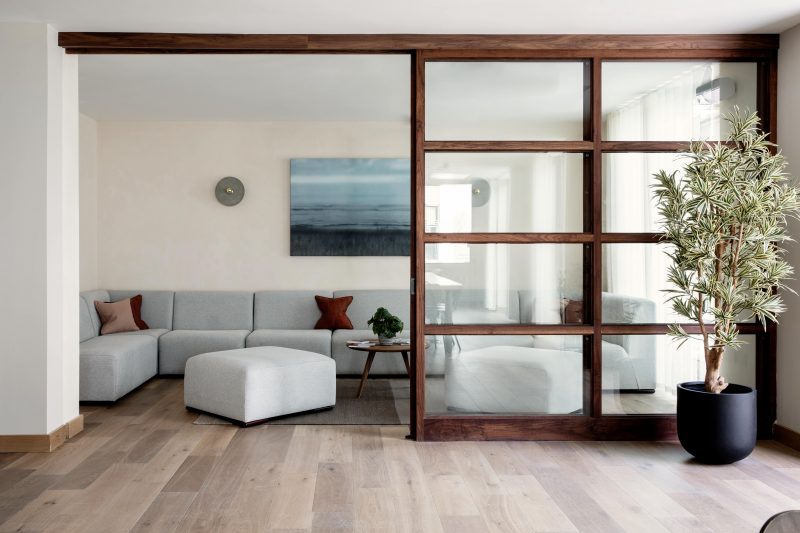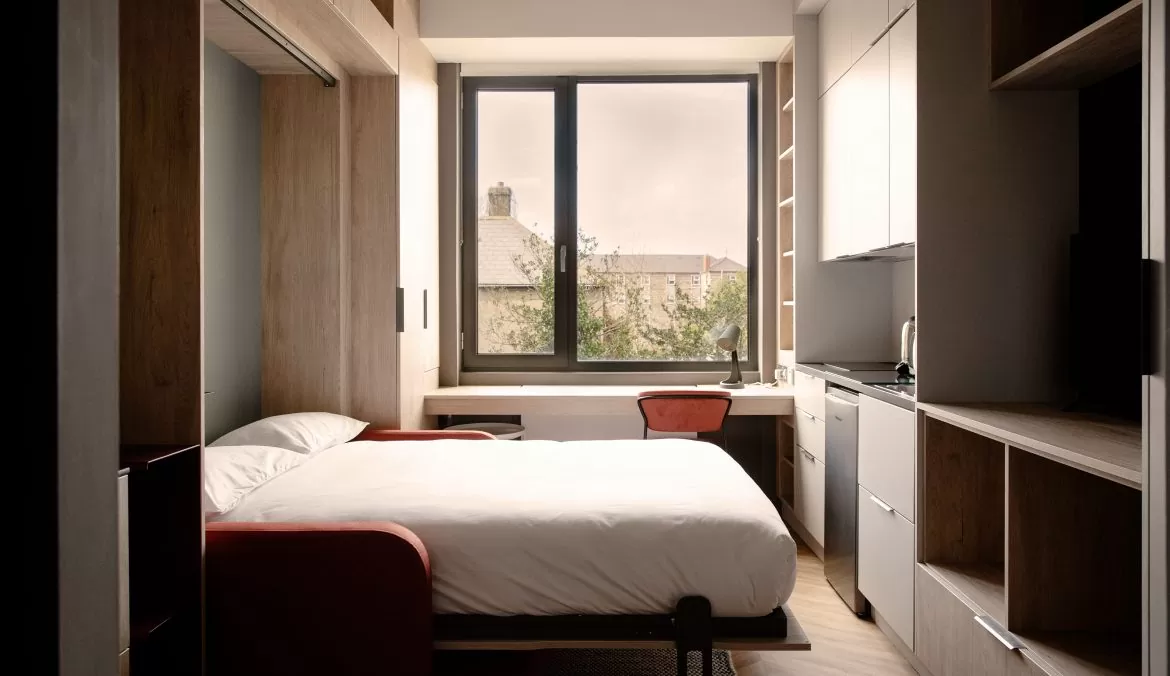Coliving has had a rough start in Ireland. In 2018, regulations were introduced that allowed coliving schemes that provided 129 SF of living space per person, and a backlash ensued.
As a result, in 2020, new coliving schemes were banned — even though several schemes had already been approved for planning. Those pre-ban schemes were allowed to progress.
But coliving offers a real opportunity amid a chronic housing shortage. As the first approved large scale coliving scheme opens its doors in Ireland and the debate around the ban continues, this is an opportunity to demonstrate the benefits that coliving can offer.
When the concept of coliving first arrived, it became an area of political debate primarily because of the size of the unit. Objections hit the airwaves because nobody explained what the concept of coliving really is. But in Ireland, the housing crisis is a perfect storm of supply and demand. Coliving can be part of the solution.
Leo Colgan, Co-Founder & Chief Growth Officer
The concept of coliving is to provide compact studios for residents, while providing a larger proportion of shared amenities than in an apartment block, such as common living areas, kitchens and coworking spaces.
Benefits of coliving
It provides the opportunity to provide homes amid the ongoing housing crisis. In Q4 2022, the average rent of €1,733 per month was 13.7% above the same period the previous year. In February 2023, there were 1,096 properties available to rent, down more than 20% on the previous year, while there were a record 11,600 homeless people.
At the moment, various living models are expanding as the sector attempts to create much-needed homes. Aparthotels and serviced living offer short-term accommodation, but due to the lack of renting options, many residents live there for much longer than schemes are designed to accommodate people, often months or even a year. This is the gap in the market that coliving could fill.
The tech sector, which brings international workers to Ireland, is a key target audience for coliving. Workers for these firms might not need to be in Ireland for long and currently struggle to find a suitable place to live. The lack of short- or medium-term options means they end up renting homes in suburban areas — homes that could otherwise be rented by families or those living in Ireland permanently.
Essentially, coliving caters for a small percentage of the public who are otherwise forced into taking traditional housing stock off the market. This is the sort of housing stock that needs to be freed up.
Coliving also provides high-quality homes. While renting in a coliving scheme might cost more than renting a room in a house share, it includes everything from Wi-Fi, electricity and heating, to a gym, shared amenities and even a calendar of events.
Leo calls it grown-up student accommodation. “It’s not cheap, but it really is exceptional. For young, single people who might work in a tech company, it provides everything they need.”
The first coliving scheme to open its doors has been developed by Bartra Group under the brand Niche Living, a scheme that gained planning permission before the ban came in.

IMS and Niche Living
IMS designed and delivered the building’s connectivity infrastructure, Wi-Fi network and TV, and audiovisual offering and will continue supporting the property on an ongoing basis.
The partnership between IMS and Niche Living is more of a collaboration in putting the needs of the residents first. Residents can connect their devices to their own network from anywhere in the building, which is a key part of the coliving concept.
There are coworking spaces on every floor, which makes connectivity across the building essential. A lot of people will be in these spaces, each with their own personal network. They want to have a home-from-home experience.
IMS is currently working on delivering our services in the next two Niche Living coliving schemes under construction in Dublin, which will open their doors in 2024.
This article was produced in collaboration between IMS and Studio B. Bisnow news staff Studio B is Bisnow’s in-house content and design studio. To learn more about how Studio B can help your team, reach out to studio@bisnow.com.was not involved in the production of this content.




